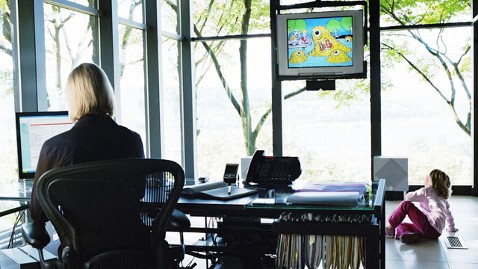Working Moms: The Data and the Politics

Getty Images
A few data points on today's working moms controversy:
- 64.4 percent of mothers with kids under 18 work for pay. ( As of 2010, per U.S. Bureau of Labor Statistics)
- More mothers than that, 70.8 percent, are in the labor force, meaning they either have a paying job or are looking for one.
- CBS poll from 2006: Do you think it is preferable or not preferable for women to work while they are raising children? Preferable 49 percent, not preferable 32 percent, no opinion 19 percent.
- Different question, Pew poll, October 2010, 21 percent said "more mothers of young children working outside the home" was a good thing for society; more, 37 percent, said it was a bad thing; and 38 percent said it doesn't make much difference. (If you tote up the "good thing" and "no difference" you get 59 percent not objecting.)
- Another Pew poll, 2009, 52 percent said the "ideal situation for children" (note - "for children") was to have a mother working part-time (40 percent) or full-time (12 percent), as opposed to not working at all (seen as ideal for children by 42 percent).
- In a poll we did in 2005, 79 percent of working mothers said they'd still work even if they didn't have to (but many said they'd work shorter hours).
And two comments on the politics:
- Never attack a candidate's wife.
- An opening for Romney but not a slam dunk, and indeed perhaps double-edged. With so many mothers holding paying jobs or looking to do so, the subject again underscores the privilege of wealth; in this case, the ability of the spouse to choose not to work for pay. For most families, that's just not an option.